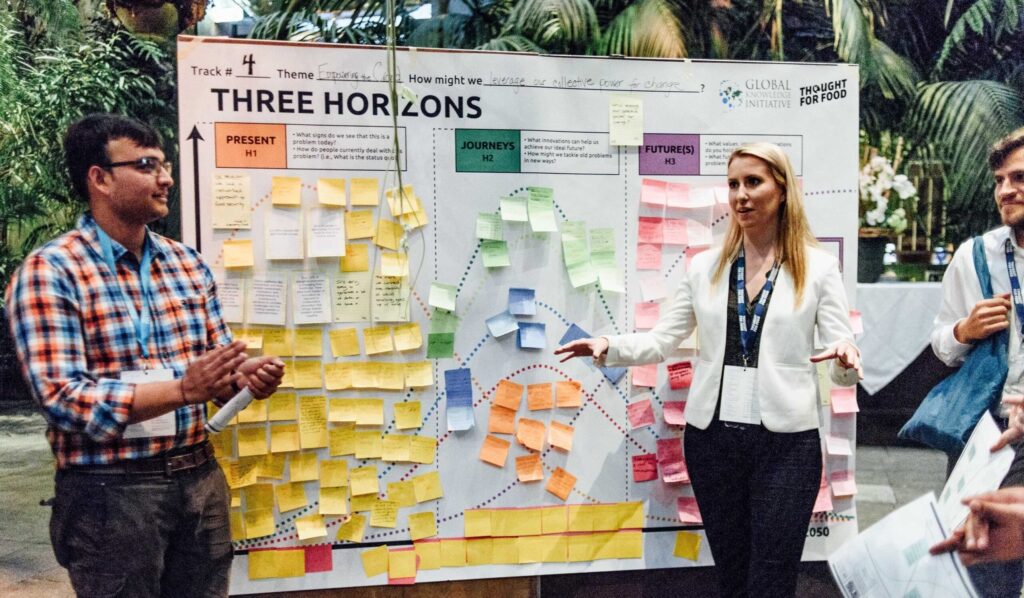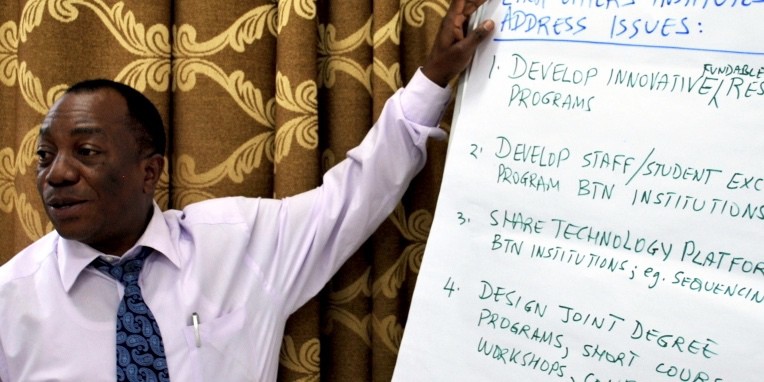How might we grow Africa’s next generation of innovators?
UNESCO-Supported Training of Trainers: A Partnership with Tanzania-Based Nelson Mandela Africa Institute of Science and Technology
Challenge
Innovation is a team sport. Many people and institutions influence the degree to which innovation contributes to socioeconomic development, or doesn’t. Professionals of all types – the entrepreneur, the researcher, the policymaker – have a role to play. Too often, the people who could exert influence over innovation practice in a specific place either don’t fully understand how innovation works, or aren’t clear how they might make a difference. Innovation System Leadership training explains the roles various actors and institutions play in promoting (or hindering) innovation. While this type of training exists in Africa, it is far from mainstream. This means too few people across Africa understand the important part they play in catalyzing innovation in their communities.
Solution
UNESCO (the United Nations Educational, Scientific, and Cultural Organization), along with the Nelson Mandela Africa Institute of Science and Technology (NM-AIST) and GKI combined forces to bring Innovation Systems Leadership training into the mainstream in East Africa. A GKI-designed training of trainers program rests at the center of this effort. It was created to equip a core group of NM-AIST faculty with the skills and resources needed to lead Innovation Systems Leadership courses far into the future. GKI trained and coached NM-AIST faculty on the foundations of Innovation Systems Leadership. Providing both curricular and pedagogical support, GKI trainers were on hand as NM-AIST faculty delivered their first courses to Tanzanian entrepreneurs, and then policymakers. GKI continues to work alongside UNESCO and NM-AIST to build out the curriculum and identify resources for an emerging Innovation Systems Leadership Center of Excellence at NM-AIST.
Results / Outcomes
- Trained 18 Tanzanian trainers, who subsequently trained over 150 Tanzanian professionals
- Developed 10 foundational Innovation Systems Leadership course modules, including instructor resources
- Delivered in-person training-of-trainer instruction and coaching, including a January 2013 refresher course, for trainers
- Developed a three-year vision to launch an Innovation Systems Leadership Center of Excellence at NMAIST
- Training-of-trainers course was featured as a case study at a UNESCO-hosted event during the Second Ministerial Forum on Science and Technology in Rabat, Morocco in 2014
- In 2016 constructed a new suite of tools on Innovation Systems Leadership geared at policymakers




